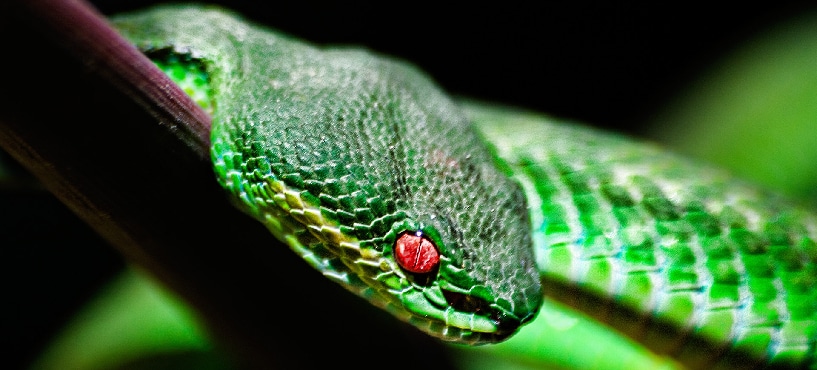Introduction:
Bali, with its lush landscapes and vibrant wildlife, is a paradise for nature lovers. However, like any tropical destination, it is home to some dangerous animals that visitors should be aware of. Knowing about these creatures can help you stay safe and enjoy your time on the island without unnecessary risks. In this guide, we’ll explore some of the most dangerous animals in Bali and provide tips on how to avoid them.
Section 1: Snakes
King Cobra
Description: The King Cobra is one of the most venomous snakes in the world and can be found in Bali’s forests and rural areas. It can grow up to 18 feet long and has a potent neurotoxic venom that can be fatal if not treated promptly.
Tips for Avoidance
- Avoid walking through tall grass or dense vegetation where snakes may hide.
- Wear sturdy boots and long pants when hiking in rural or forested areas.
- If you encounter a snake, stay calm and back away slowly. Do not attempt to handle or provoke it.
- Seek immediate medical attention if bitten by a snake.
Russell’s Viper
Description: Russell’s Viper is another venomous snake found in Bali. It has a distinctive pattern of dark brown spots and can deliver a highly toxic bite. This snake is usually found in grasslands, agricultural fields, and rural areas.
Tips for Avoidance
- Be cautious when walking through grassy areas, especially at night.
- Use a flashlight to check your path if walking in low-light conditions.
- Do not disturb or attempt to handle snakes.
- Learn to recognize the appearance of Russell’s Viper to stay vigilant.
Section 2: Marine Life
Box Jellyfish
Description: Box jellyfish are found in Bali’s coastal waters and are considered one of the most venomous marine creatures. Their tentacles contain toxins that can cause severe pain, cardiac arrest, and even death.
Tips for Avoidance
- Pay attention to beach warnings and avoid swimming in areas where box jellyfish have been sighted.
- Wear protective clothing, such as a stinger suit, when swimming or snorkeling.
- If stung, seek immediate medical attention and rinse the affected area with vinegar to neutralize the toxins.
Stonefish
Description: Stonefish are camouflaged to look like rocks and are found in shallow coastal waters. They have venomous spines that can cause excruciating pain, swelling, and potentially serious complications if stepped on.
Tips for Avoidance
- Wear water shoes or sandals when walking in shallow water or on rocky shores.
- Be cautious when placing your hands or feet in areas where stonefish may hide.
- If stung, seek medical attention immediately and apply hot water to the affected area to alleviate pain.
Section 3: Insects and Arachnids
Mosquitoes
Description: Mosquitoes in Bali can transmit diseases such as dengue fever, malaria, and chikungunya. These diseases can cause severe flu-like symptoms and require medical treatment.
Tips for Avoidance
- Use insect repellent containing DEET or other effective ingredients.
- Wear long sleeves and pants, especially during dawn and dusk when mosquitoes are most active.
- Stay in accommodations with screened windows or use mosquito nets.
- Remove standing water around your lodging to reduce mosquito breeding sites.
Centipedes
Description: Large centipedes in Bali can deliver painful bites that cause swelling, redness, and intense pain. These nocturnal creatures are often found in dark, damp areas.
Tips for Avoidance
- Check your shoes, clothing, and bedding before use, especially in rural areas.
- Keep your living area clean and free of debris where centipedes might hide.
- If bitten, clean the wound thoroughly and seek medical attention if symptoms worsen.
Section 4: Mammals
Monkeys
Description: Monkeys, particularly long-tailed macaques, are common in tourist areas such as the Ubud Monkey Forest. While they may seem friendly, they can become aggressive and bite or scratch if they feel threatened or are trying to steal food.
Tips for Avoidance
- Do not feed or attempt to touch the monkeys.
- Keep a safe distance and avoid direct eye contact, which can be seen as a challenge.
- Secure your belongings, as monkeys are known to snatch bags, sunglasses, and other items.
- If bitten or scratched, clean the wound and seek medical attention to prevent infection or diseases like rabies.
Conclusion:
While Bali is a beautiful and largely safe destination, it’s important to be aware of the potential dangers posed by certain animals. By taking the necessary precautions and staying informed, you can minimize risks and enjoy your time on the island. Respect the wildlife and natural environment, and remember that most encounters can be safely avoided with a bit of caution and common sense. Stay safe and enjoy the stunning beauty and rich experiences that Bali has to offer.





